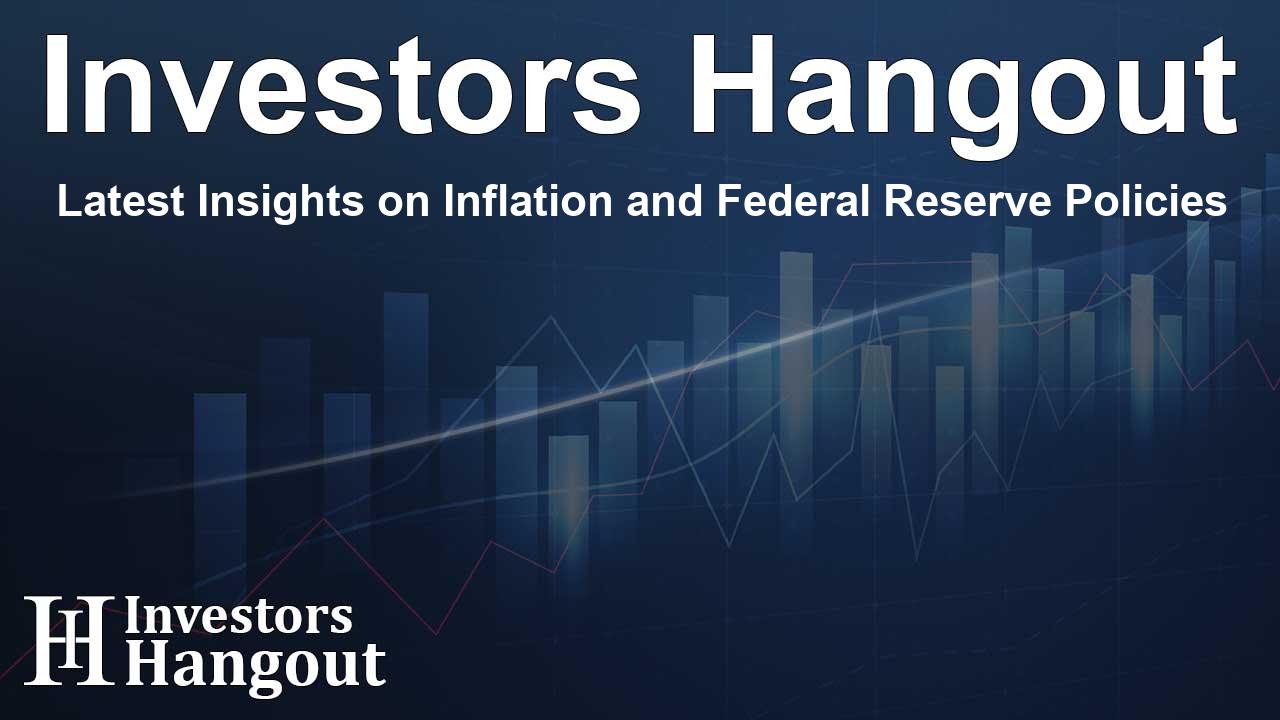Latest Insights on Inflation and Federal Reserve Policies

Understanding Inflation Trends
A recent report revealed that consumer prices in the U.S. are rising, albeit at a slower rate. This report marks the lowest annual inflation pace in three years. The Consumer Price Index (CPI) showed an increase of 2.5% compared to last year, which is a decrease from July's 2.9%. Notably, this decrease aligns with economists' forecasts, indicating a more controlled inflation rate.
Monthly CPI Overview
For monthly changes, the CPI rose by 0.2%, consistent with the previous month. These figures are crucial as they reflect consumer price trends in real-time. The core CPI, excluding food and energy, saw a monthly increase of 0.3% and an annual rise of 3.2%. This persistent increase highlights ongoing inflationary pressures.
External Influences on Inflation
While inflation appears to be moderating, it still exceeds the Federal Reserve's target of 2%. Recent labor market reports suggest a potential weakening, which could influence future policy decisions by the Fed. These economic indicators have led many to speculate about upcoming interest rate cuts, aimed at stimulating growth.
Federal Reserve's Potential Actions
Current market expectations suggest a high probability that the Federal Reserve will cut interest rates in its next meeting. As officials analyze inflation data, there is a question of how aggressively they will implement these cuts. Fed Chair Jerome Powell has indicated that a change in policy could be forthcoming.
Analysts' Reactions to Inflation Reports
Market analysts have mixed feelings regarding the inflation report, with some expressing concerns about the unexpectedly high core inflation. The response from the financial sector indicates that there could be substantial debate within the Fed about the appropriate level of interest rate cuts. The emphasis is on caution while navigating the complexities of inflation management.
Consumer Price Index Breakdown
Digging deeper into the CPI figures reveals that certain categories, such as shelter and food, have significantly impacted inflation. The shelter index rose by 5.2% year-over-year, continuing its upward trajectory. Meanwhile, energy prices experienced a slight decline, providing some relief.
Food and Energy Price Behaviors
The food index showed a slight uptick, reinforcing the persistent nature of inflation in essential goods. Conversely, energy prices have shown some fluctuations, with a notable decrease in gas prices recently. These shifting dynamics are essential for understanding the broader economic landscape.
Recommendations for Investors
In light of these developments, investors are advised to stay informed about potential changes in policy by the Federal Reserve. The landscape can shift rapidly, influenced by inflation data and economic reports. Engaging with these insights can help in formulating strategic investment decisions.
Frequently Asked Questions
What factors influence the Consumer Price Index?
The CPI is influenced by various factors, including the prices of essential goods like food and shelter, as well as energy costs, which can fluctuate due to geopolitical and economic conditions.
How does inflation affect the Federal Reserve's decisions?
Inflation levels directly impact the Federal Reserve's monetary policy. When inflation exceeds targets, it may prompt the Fed to adjust interest rates to steer the economy toward stability.
What are the implications of interest rate cuts?
Interest rate cuts generally aim to stimulate economic growth by making borrowing cheaper, encouraging businesses to invest and consumers to spend, which can help mitigate inflation pressures in the long run.
Why is core inflation significant?
Core inflation excludes volatile items like food and energy, providing a clearer picture of underlying inflation trends, which is vital for policy-making decisions.
How can I track inflation trends?
Keeping abreast of reports from trusted economic institutions and financial news outlets can help individuals track inflation trends and understand their implications for personal finance and investments.
About Investors Hangout
Investors Hangout is a leading online stock forum for financial discussion and learning, offering a wide range of free tools and resources. It draws in traders of all levels, who exchange market knowledge, investigate trading tactics, and keep an eye on industry developments in real time. Featuring financial articles, stock message boards, quotes, charts, company profiles, and live news updates. Through cooperative learning and a wealth of informational resources, it helps users from novices creating their first portfolios to experts honing their techniques. Join Investors Hangout today: https://investorshangout.com/
Disclaimer: The content of this article is solely for general informational purposes only; it does not represent legal, financial, or investment advice. Investors Hangout does not offer financial advice; the author is not a licensed financial advisor. Consult a qualified advisor before making any financial or investment decisions based on this article. The author's interpretation of publicly available data shapes the opinions presented here; as a result, they should not be taken as advice to purchase, sell, or hold any securities mentioned or any other investments. The author does not guarantee the accuracy, completeness, or timeliness of any material, providing it "as is." Information and market conditions may change; past performance is not indicative of future outcomes. If any of the material offered here is inaccurate, please contact us for corrections.